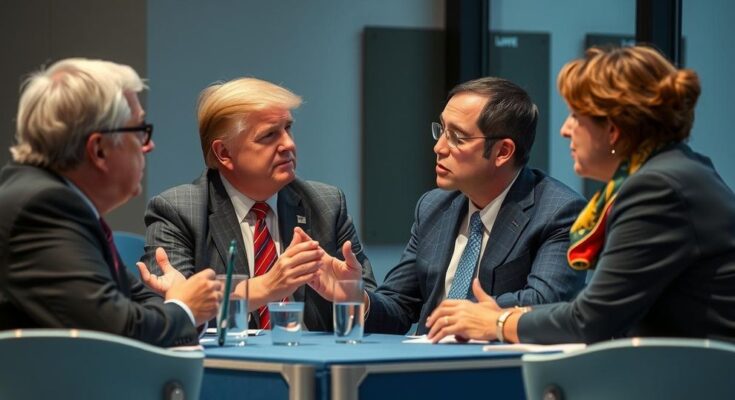The German government seeks to downplay Elon Musk’s backing of the AfD, emphasizing concerns over foreign influence in elections while recognizing the party’s right-wing extremism. Musk’s opinion piece has stirred controversy, leading to media debates over free speech and editorial ethics.
The German government has made efforts to mitigate the repercussions of Elon Musk’s endorsement of the far-right Alternative for Germany (AfD) party ahead of the upcoming general election. Following Musk’s controversial opinion piece in a prominent newspaper, which resulted in the resignation of the editorial opinion editor, a government spokesperson emphasized that Musk’s freedom of expression includes the right to share what may be deemed nonsensical views. While recognizing Musk’s attempt to influence the electoral landscape, officials reiterated that the AfD has been under surveillance for its extremist tendencies by Germany’s intelligence agencies. Despite Musk’s assertions regarding economic prosperity under AfD, the party, led by Alice Weidel, faces major opposition from other political entities that refuse to collaborate with it. There is a growing debate within the media circle concerning free speech and the appropriateness of a foreigner commenting on Germany’s political issues.
In the wake of Chancellor Olaf Scholz’s coalition government dissolution and the looming early elections scheduled for February 23, 2024, the political landscape in Germany has become increasingly polarized. Elon Musk’s recent backing of the AfD has sparked widespread criticism and raised concerns about external influences on Germany’s democratic processes. The AfD’s rising popularity amidst a stagnant economic backdrop poses a challenge to established political norms, and Musk’s foreign input on such matters has intensified the discourse around national identity and political values.
In summary, the German government’s response to Elon Musk’s endorsement of the AfD reflects concerns about foreign influence in domestic politics and highlights the delicate balance between free expression and the responsibility that accompanies it. The upcoming elections serve as a critical juncture for Germany as it navigates the implications of rising populism and the challenges posed by far-right ideologies, with significant implications for its future.
Original Source: apnews.com




